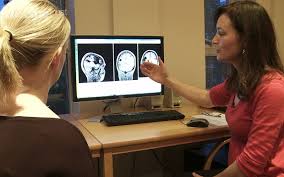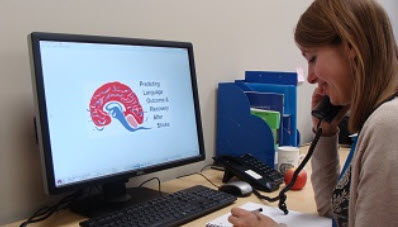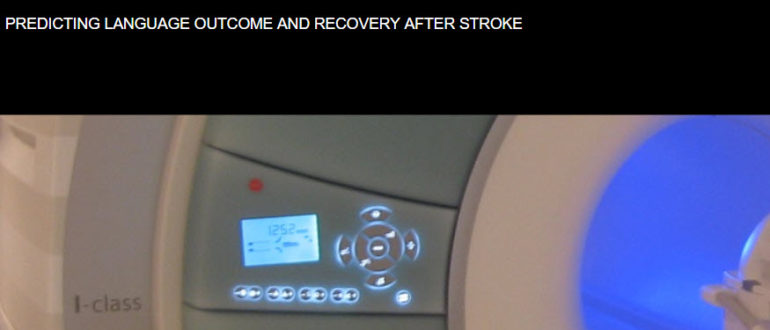What is Aphasia?
 Aphasia is more common than you might think.
Aphasia is more common than you might think.
- every five minutes someone in the UK has a stroke.
- there are approximately 152,000 strokes in the UK every year.
About a third of these people will have Aphasia. Aphasia is a communication disorder that can affect a person’s ability to speak, to understand speech, and to read and write. It can occur after a neurological injury, such as stroke. Aphasia is mainly treated by speech and language therapy.
Aphasia research is ongoing; studies include revealing underlying problems of brain tissue damage, the links between comprehension and expression, rehabilitation methods, drug therapy, speech therapy, and other ways to understand and treat aspects of aphasia.
But currently very little information can be given to people with aphasia about whether their language will get better, and how long this might take.
 The PLORAS research study aims to improve our understanding of how language works in the brain. Their goal for the future is to be able to give people with aphasia, their families and healthcare professionals a prediction about:
The PLORAS research study aims to improve our understanding of how language works in the brain. Their goal for the future is to be able to give people with aphasia, their families and healthcare professionals a prediction about:
- How much language the person is likely to re-gain.
- How long this is likely to take.
So, the two ways to help stroke patients with aphasia?
- STROKE SURVIVORS WITH APHASIA – come for an MRI brain scan
The PLORAS study is carried out by conducting structural and functional MRI scans with people who have had a stroke, and by carrying out a language test. Both people with and without communication problems are included. This information is analysed together with information about time post-stroke, to look for patterns in recovery.
 Updates on the progress of their research can be found on their website,
Updates on the progress of their research can be found on their website,
or by downloading their latest newsletter.
Please get involved!!
Opportunity for non-stroke survivors to get involved!
2. EVEN IF YOU HAVEN’T HAD A STROKE, please come for an MRI Brain Scan.
Currently the PLORAS team is ALSO inviting people who have NOT had a stroke to have an MRI brain scan at their centre. Please help the team…
This is because they need some participants to act as ‘healthy controls’ to help them adjust their lesion identification software.
If you think that you might be interested, please get in touch by emailing ploras@ucl.ac.uk, or by calling 020 7813 1538. The team will need to ask some questions about your medical history in order to meet the strict safety criteria at their Centre.
The PLORAS research study is based at the Wellcome Centre for Human Neuroimaging and is led by Professor Cathy Price.
Below is a talk given by Professor Cathy Price – click and play!
PLORAS would like to thank ARNI for the support for stroke survivors
Other Support for Aphasia and Stroke:
PLORAS useful links – a list of organisations that provide information or support




